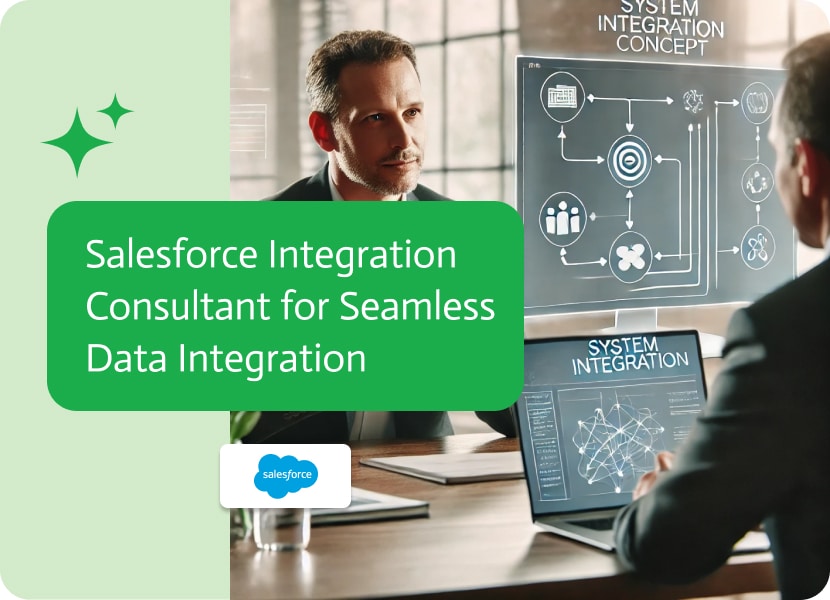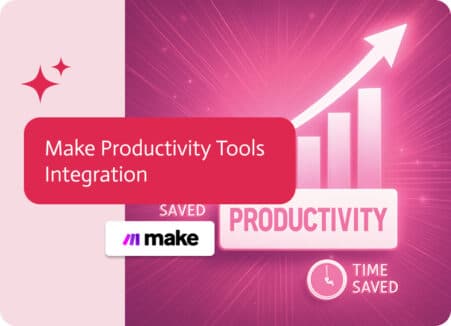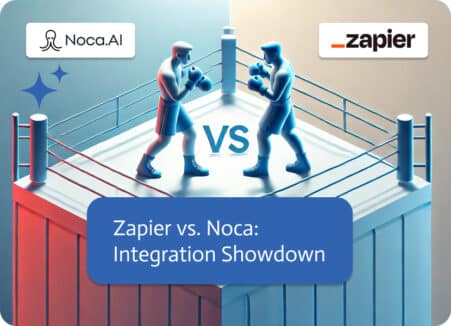

Salesforce Integration Consultant for Seamless Data Integration
In today’s competitive and fast-paced business environment, companies are increasingly turning to Salesforce Integration Consultants to streamline their operations, optimize data flow, and improve customer experiences. A Salesforce Integration Consultant specializes in integrating Salesforce with a variety of external systems, allowing organizations to synchronize data across platforms and enhance operational efficiency. As more businesses adopt Salesforce as their primary Customer Relationship Management (CRM) platform, the demand for skilled integration consultants continues to grow.
In this comprehensive guide, we’ll explore the role of a Salesforce Integration Consultant, key skills, integration techniques, industry applications, and best practices for successful Salesforce integration. We’ll also dive into some of the challenges faced by these consultants and the importance of continuous learning to remain relevant in the rapidly evolving world of Salesforce.
What is a Salesforce Integration Consultant?
A Salesforce Integration Consultant is a technical expert responsible for integrating Salesforce CRM with other enterprise systems such as ERPs, marketing automation platforms, and data warehouses. These professionals design and implement customized integration solutions that align with the organization’s goals, ensuring seamless communication between different software applications.
The role goes beyond simply connecting systems; a Salesforce Integration Consultant also plays a key role in data management, change management, and process automation, making them critical to an organization’s digital transformation efforts. Their work improves CRM workflows, supports decision-making with accurate data, and enhances customer interactions.
Why Are Salesforce Integration Consultants in High Demand?
As organizations continue to rely on multiple systems to manage various aspects of their operations, the need for seamless data synchronization between these systems becomes more apparent. Salesforce, being one of the leading CRM platforms, is often at the heart of these systems. Integrating Salesforce with other business-critical applications ensures that data flows smoothly across the enterprise, enabling better customer insights, operational efficiency, and scalability.
With the shift toward digital transformation, businesses now place greater emphasis on customer-centric models. This change drives the demand for Salesforce Integration Consultants, who bridge the gap between technology and business strategy, ensuring that all systems work harmoniously together.
Key Responsibilities of a Salesforce Integration Consultant
Salesforce Integration Consultants are entrusted with a wide range of responsibilities to ensure successful implementation and optimization of Salesforce solutions. Their tasks span technical, project management, and client-facing roles. Here’s an overview of their key responsibilities:
- Project Management: Consultants manage the full lifecycle of integration projects, from initial planning and design to execution and post-implementation support. They develop detailed project plans that outline milestones, resource allocation, and timelines to ensure projects stay on track and within budget.
- Stakeholder Engagement: Engaging with stakeholders across departments is crucial for successful integration. Consultants gather requirements from all relevant parties and ensure the integration solution aligns with the organization’s overall strategy. Effective communication with stakeholders is key to managing expectations and addressing potential concerns.
- Technical Solution Design: Salesforce Integration Consultants analyze the technical requirements and design scalable integration solutions. They often work with APIs, middleware tools, and ETL processes to ensure data flows smoothly between systems.
- Training and Support: After implementing the integration, consultants are responsible for training end-users and administrators. They conduct workshops, create user manuals, and provide ongoing support to ensure users maximize the benefits of the new system.
- Data Management: Maintaining data integrity across integrated systems is critical. Consultants handle data migration, cleansing, and validation to ensure the accuracy and security of sensitive information.
Skills Required for Salesforce Integration Consultants
To excel in this role, Salesforce Integration Consultants need to possess a diverse skill set that combines technical expertise, project management capabilities, and excellent communication skills. Here are the key skills required:
- Technical Expertise: A deep understanding of Salesforce and integration tools such as MuleSoft, Boomi, and Informatica is essential. Consultants must also be familiar with API development (SOAP, REST, GraphQL), middleware solutions, and ETL processes.
- Problem-Solving Skills: Consultants must navigate the complexities of integrating disparate systems and data formats. The ability to troubleshoot issues, find creative solutions, and optimize workflows is crucial to ensuring successful integrations.
- Project Management: Managing multiple projects simultaneously requires strong organizational and leadership skills. Consultants should be able to create clear project plans, manage resources, and coordinate cross-functional teams.
- Communication and Collaboration: Since consultants often work closely with both technical and non-technical stakeholders, they must be able to explain complex concepts in simple terms. Collaboration with internal teams, external vendors, and clients is critical to the success of any integration project.
- Data Analytics and Management: Consultants need strong data management skills to ensure data quality during the integration process. They should also have the ability to analyze data trends and provide insights that can drive business improvements.
Common Integration Techniques Used by Salesforce Integration Consultants
Salesforce Integration Consultants employ various techniques to integrate Salesforce with other systems. These techniques ensure that data is synchronized in real-time, enabling businesses to operate more efficiently. Some common integration methods include:
- Point-to-Point Integration: This method involves direct communication between two systems. It is relatively simple but can become costly and complex as the number of integrated systems grows.
- Hub-and-Spoke Integration: This method uses a central hub to manage communication between multiple systems. It simplifies the integration architecture and provides a single point of control for managing integrations.
- API-Based Integration: APIs (Application Programming Interfaces) are commonly used to connect Salesforce with other applications. Salesforce supports various APIs such as SOAP, REST, and GraphQL, which facilitate seamless communication and data exchange between systems.
- Middleware Solutions: Middleware platforms like MuleSoft, Boomi, and Talend are often used to connect Salesforce with external systems. These platforms provide pre-built connectors and integration templates that simplify the integration process.
Industry Applications of Salesforce Integration
Salesforce Integration Consultants are in high demand across various industries, including healthcare, finance, retail, and manufacturing. Each industry has unique needs and challenges when it comes to integrating Salesforce with their existing systems. Let’s explore how consultants add value in these sectors:
- Healthcare: Integrating Salesforce with electronic medical records (EMRs) and patient management systems helps healthcare providers streamline operations, improve patient care, and maintain compliance with regulatory standards.
- Finance: In the finance industry, integration consultants help organizations connect CRM platforms like Salesforce with ERP systems to improve customer service and ensure compliance with financial regulations.
- Retail: Retailers often rely on Salesforce to manage customer relationships, track sales, and monitor inventory. Consultants integrate Salesforce with e-commerce platforms and supply chain systems to provide a unified view of customer data and optimize sales processes.
- Manufacturing: In manufacturing, consultants integrate Salesforce with production and inventory management systems, enabling companies to track orders, manage supply chains, and improve customer satisfaction.
Challenges Faced by Salesforce Integration Consultants
While Salesforce Integration Consultants play a pivotal role in enhancing business operations, they also face several challenges. Some of the most common challenges include:
- Data Quality: Ensuring data accuracy and consistency across systems is one of the biggest challenges. Poor data quality can lead to errors, inefficiencies, and mistrust in the system.
- User Adoption: Introducing new systems can be met with resistance from users. Consultants must develop change management strategies and provide comprehensive training to ensure users adopt the new system.
- Complexity of Integrations: Integrating Salesforce with legacy systems or custom-built applications can be complex and time-consuming. Consultants must navigate these challenges and ensure that integrations are scalable and maintainable.
- Compliance and Security: Ensuring compliance with data protection regulations such as GDPR and HIPAA is critical during integration projects. Consultants must implement security best practices to protect sensitive data.
Best Practices for Salesforce Integration
To overcome these challenges and ensure successful Salesforce integrations, consultants follow several best practices:
- Thorough Requirement Gathering: Understanding the business goals and technical requirements of the integration is critical to designing an effective solution. This ensures that the integration aligns with the organization’s objectives and helps achieve desired outcomes, such as better customer experience or streamlined operations.
- Stakeholder Involvement: Engaging stakeholders early in the project ensures that all needs are addressed and that the solution aligns with the organization’s strategy. Gathering input from different teams and departments helps create a more holistic integration approach and prevents disruptions during the implementation phase.
- Testing and Validation: Rigorous testing is essential to identify and resolve any issues before the system goes live. Consultants should conduct User Acceptance Testing (UAT) to ensure that the integration meets business requirements and functions as expected. This step also includes stress testing to gauge how the system will perform under heavy data loads.
- Continuous Monitoring: Post-implementation, consultants should monitor system performance and address any issues promptly. Continuous monitoring ensures that the integration continues to deliver value to the organization by identifying bottlenecks or inefficiencies early on and optimizing processes over time.
- iPaaS (Integration Platform as a Service): Leveraging an iPaaS solution is becoming a best practice for Salesforce integrations, especially for organizations with complex systems that require seamless data flow between multiple platforms. iPaaS platforms, such as Noca AI, provide a no-code or low-code environment that simplifies the integration process, allowing businesses to connect Salesforce with various applications quickly. By using AI-first and NLP-first technologies, iPaaS platforms like Noca AI help automate integrations, reducing manual intervention and ensuring better scalability. This approach is particularly useful for business users and system administrators who need to manage integrations without deep technical knowledge, streamlining the process while maintaining flexibility and control.
Conclusion
Salesforce Integration Consultants play an essential role in helping organizations streamline their operations and improve customer experiences by integrating Salesforce with other systems. Their expertise in technical solution design, data management, and project management ensures that integrations are successful and scalable. By following best practices and staying up-to-date with the latest tools and technologies, these consultants can overcome challenges and deliver valuable solutions to their clients.
As digital transformation continues to shape the business landscape, the role of Salesforce Integration Consultants will become increasingly important. Organizations looking to remain competitive in a data-driven world will continue to seek out these experts to help them unlock the full potential of Salesforce and drive business growth.
FAQs About Salesforce Integration Consultants
- What does a Salesforce Integration Consultant do?
- They design, implement, and manage the integration of Salesforce CRM with other business systems, ensuring seamless data flow and improved operational efficiency.
- What skills are required for a Salesforce Integration Consultant?
- Key skills include technical expertise in Salesforce and integration tools, project management, problem-solving, data management, and excellent communication.
- Which industries benefit most from Salesforce integration?
- Industries such as healthcare, finance, retail, manufacturing, and telecommunications benefit significantly from Salesforce integration.
- What are the biggest challenges in Salesforce integration?
- Common challenges include managing data quality, ensuring user adoption, navigating complex integrations, and maintaining compliance with security regulations.


